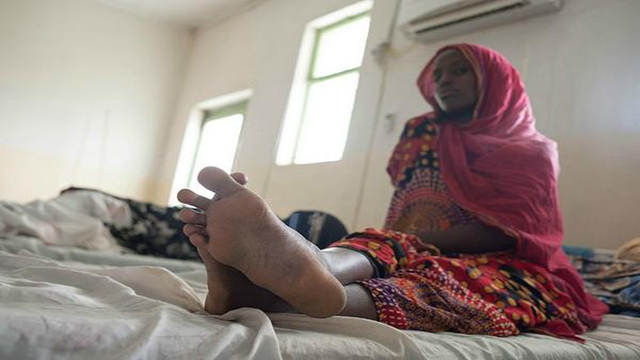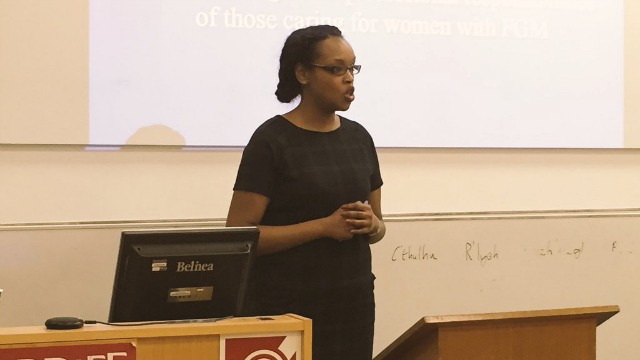Victims of FGM in Cardiff becoming more evident, an activist warns.

Somali activist highlighted the prevalent issue of Female Genital Mutilation (FGM) in Cardiff during Amnesty International’s campaign on Monday, 14 March at Cardiff University.
Amnesty International’s ongoing My Body My Rights campaign welcomed women’s rights activist Nimco Ali who is originally from Cardiff wherein she emphasized the evident occurrence of FGM across England and Wales.
“More than 30 percent of FGM victims are from Sudan, Somali, Eritrea, and Djioubti, the major populations that we have here in Cardiff, and they are type three FGM, meaning, those women are stitched up,” says Ms Ali.
In 2015, it has been reported that the number of victims coming to Cardiff charities that give support have increased from 298 in the previous year to 788. Although it is a criminal offence since 1985, nobody has been persecuted in the UK.
“The lack of prosecutions was because we didn’t have any training, we didn’t have support systems, we didn’t have any way for children to come forward. I had it [FGM] when I was seven, I told my teacher, and she couldn’t understand it. I was in a hospital when I was 11. And it wasn’t as though I could pick up a piece of legislation and say this happened to me,” explains Ms Ali.
The gap that Ali has seen in females’ access to support has prompted her advocacy of ending FGM through a non-profit organisation called Daughters of Eve, which then tied seamlessly with Amnesty International’s recent campaign.
Jac Larner, organizer of My Body, My Rights campaign, says: “The main focus is on improving or allowing women to better access their human rights. It’s a broad range of things—it could be violence against women and girls, access to abortion, access to general reproductive rights.”

During the talk, Ms Ali also stressed that the dialogue about women’s rights is something that people within Cardiff communities should join. “I came here [Cardiff] last time just before January elections with three ministers—that’s how big the FGM conversation was.”
The extent of the conversation on FGM and the frequency of this problem in Wales have then triggered organisations such as Amnesty International to not only put forward this concern in their campaigns but also further the cause to the legislators all over the UK.
“At the moment, we’re focusing on the Assembly elections which are happening in May. There’s also the London elections, the Scottish and Northern Irish elections. So, we’re trying to build momentum towards that,” Mr Larner adds.
Learn more about how Nimco Ali expanded the conversation on FGM:
The use of the FGM hashtag has been known to help further the advocacy:
So I talked about #Fgm today in my childhood city Cardiff. It was the first time I was not scared or feel like that child ignored 1/2
— Nimco Ali (@NimkoAli) March 14, 2016
Among 3/4 of countries where #FGM is prevalent, the majority of girls were cut by age 5. #endFGM #CSW60
— UNICEF (@UNICEF) March 16, 2016
“I am breaking a gender stereotype by spearheading the fight against #FGM” #endfgm @UNWOMEN4Youth pic.twitter.com/Qepv0SDeNw
— #MenENDFGM (@TonyMwebia) March 15, 2016
There are no health benefits to #FGM.
So why are girls still getting cut? https://t.co/kVTtFuZ7Tm @sophwilkinson pic.twitter.com/XRFn2uRttp— Girl Effect (@girleffect) March 10, 2016
